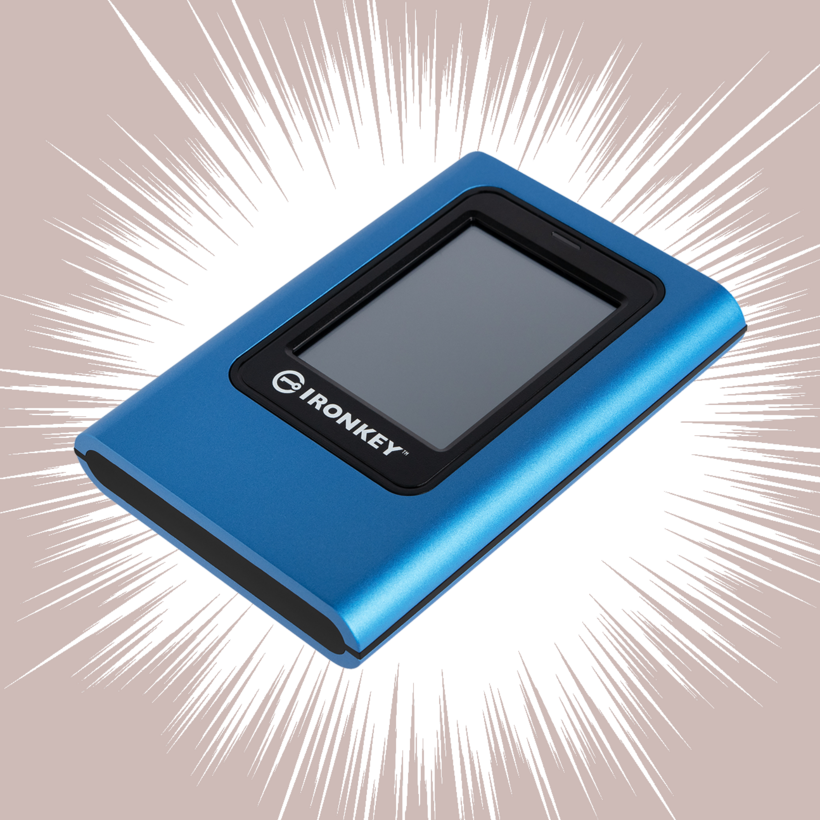The Kingston IronKey Vault Privacy 80 Memory Drive
A self-respecting hard drive that will self-destruct in the wrong hands
The story behind Kingston Technology, the Fountain Valley, California–based maker of solid-state storage—the flash memory found in everything from computers to USB sticks to cameras—is wonderful and not widely known.
The company was started in 1987 by two Chinese immigrants to the U.S., one a former chef, the other an electronics engineer. Working from a garage, they had built and sold a modest I.T. company over five years and planned to go into real estate.


